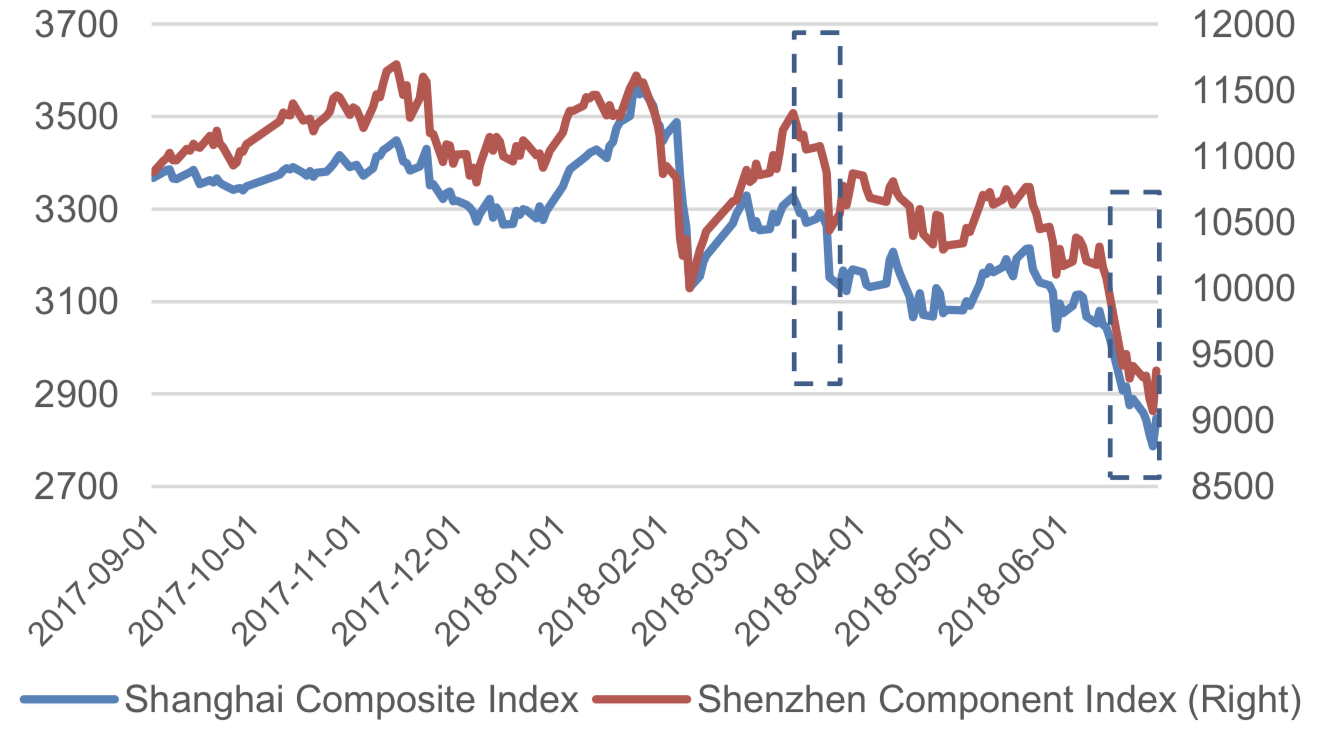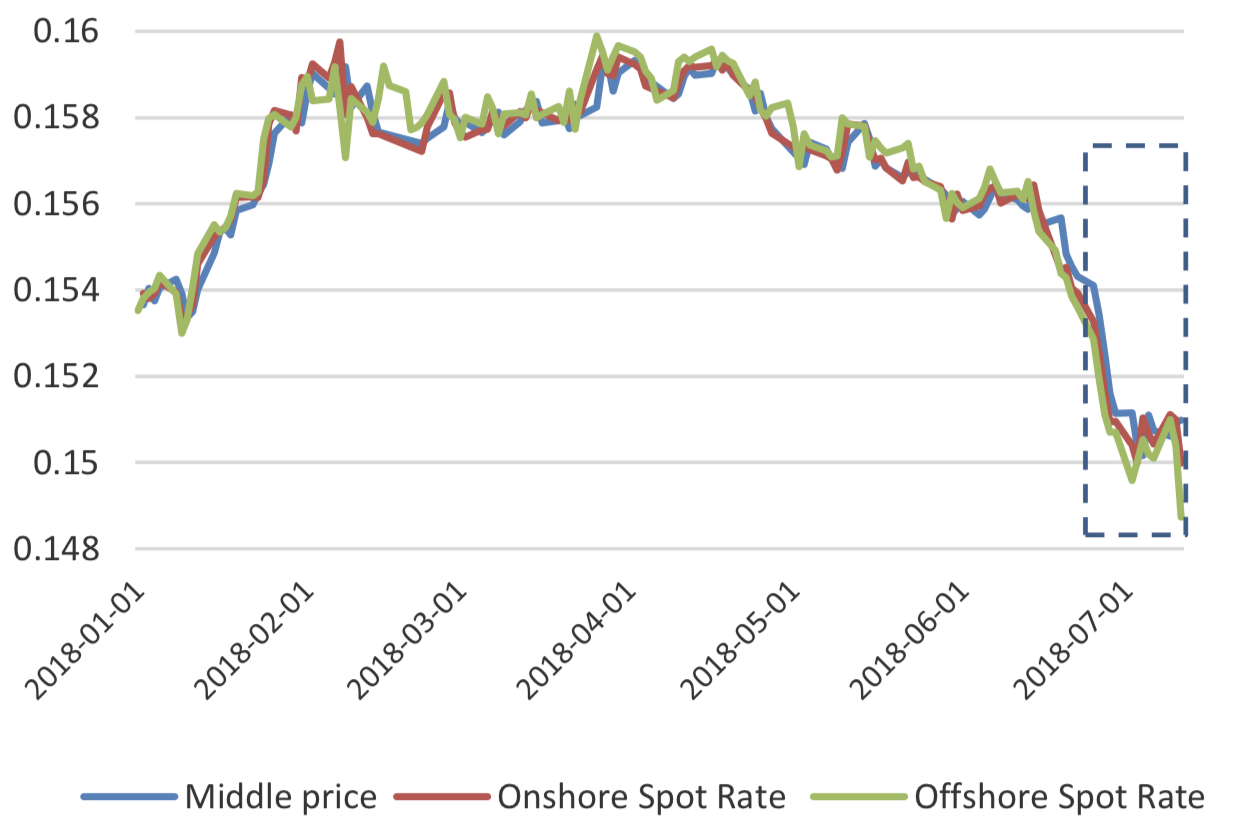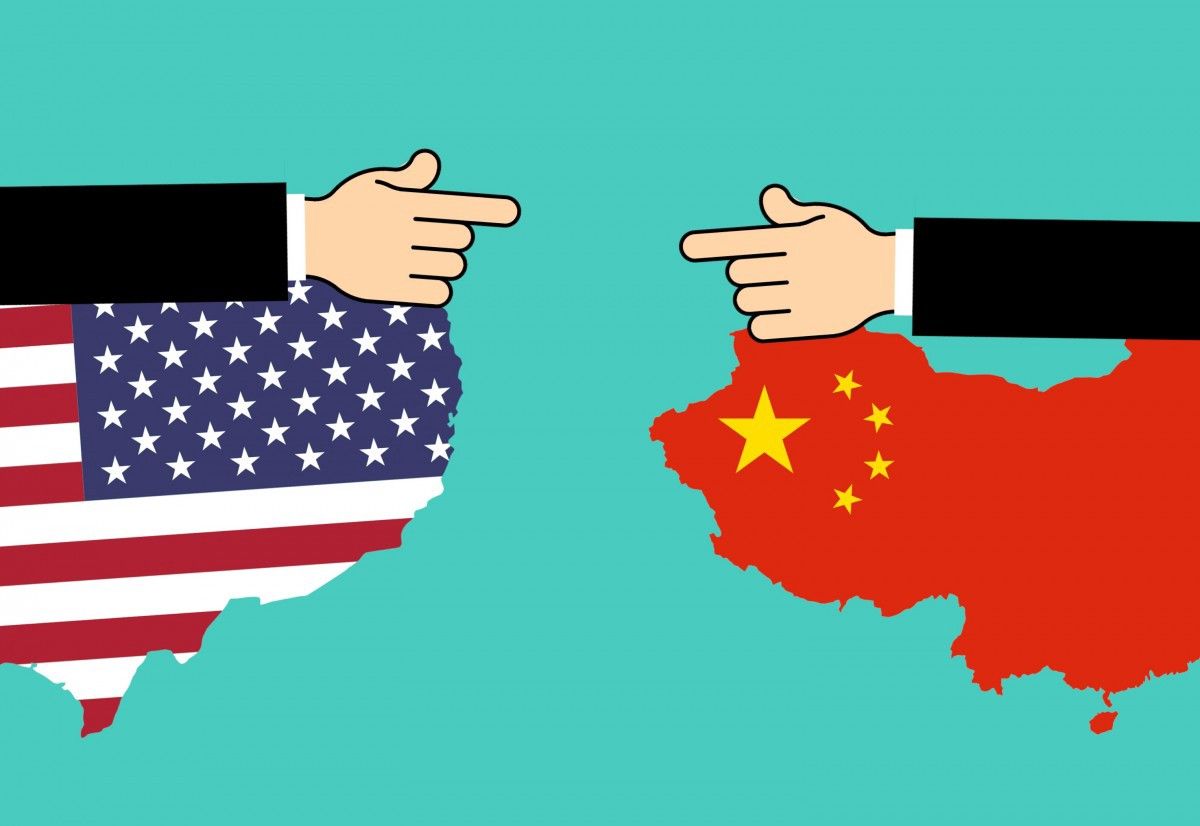China has already declared its intent to retaliate against US President Donald Trump’s new tariffs on $200 billion in Chinese imports, a move set to raise prices on consumer goods for both countries.
Several analysts have demonstrated how Trump’s tariffs will blowback on the US economy. Moody’s Investment Service previously warned that the tariffs would reduce US GDP by 0.25 percent in 2019, to about 2.3 percent. The American economy could take an even bigger hit if Trump proceeds with tariffs on $200 bn worth of Chinese products, Moody’s warned.
But whatever the impact on the American economy, an assessment by the British government’s Foreign Office (FCO) confirms that China’s stock market has indeed taken a direct hit from Trump’s tariffs, that so far is much worse than anything the US has experienced.
The newsletter report, China Financial Policy Focus, published in July by the Foreign Office’s China Economics Network based out of the British Embassy in Beijing, says that:
“Rising trade tensions between the US and China have only added further fuel to the fire, causing the stock market to fall more than 20% against its peak in January and leading the currency to depreciate substantially against the dollar.”
The biggest impact is visible in the Shanghai Composite Index, which has “declined more than 20% since its January 2018 peak. By 28 June the index was below 2800 points.”

And it’s not just the Chinese stock market that has been hit — so has the Chinese currency, the Renminbi (RMB).
“The Chinese currency has been depreciating against the dollar, hitting a one-year low in early July.”
The FCO report warns that an escalating US trade war will probably further damage the RMB’s value:
“A deepening trade war with the US will pile additional pressure on the RMB, with further depreciation a risk.”

The report does point out China’s efforts to stabilise the situation, citing circumstantial evidence that state-owned banks have bought up RMB assets to help shore-up the RMB.
The government has also continued efforts to open up the Chinese economy, but also faced numerous challenges in following through with regulations to tighten up monetary policy.
The global macroeconomic consequences of the escalating US-China trade war may not, in itself, be that big according to some economists. US traders have remained largely unfazed by the trade war, and few are concerned at this stage about the overall impact on the global economy’s GDP growth.
But there is little doubt that both the American and Chinese economies will be badly impacted, and that so far China appears to have taken the greater hit.
And of course, the crisis should be seen in context with China’s unfolding domestic resource crisis, a little-known but major driver of the Chinese economy’s tapering GDP growth rate in recent years.
In this context, an accelerating US-China trade war will exacerbate wider trends of vulnerability across the global economy, heightening the impact of the next global financial crisis.








